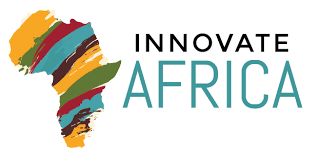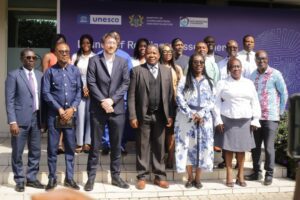
Source : Ghanaija
In the heart of Nairobi, Kenya, a dynamic tech startup known as FutureTech was about to take on a new challenge. With a team spread across various corners of Africa, including Cape Town, Lagos, and Accra, the company needed to implement best practices for virtual collaboration. This is the story of how they navigated the complexities of remote teamwork and succeeded in their mission.
The team was led by two remarkable individuals: Amina, a visionary project manager based in Nairobi, and Kwame, a tech-savvy developer residing in Accra. They had recently launched a groundbreaking project, *Innovate Africa*, aimed at developing software solutions tailored to the unique needs of the continent. With their diverse team spread across multiple cities, they faced the daunting task of ensuring seamless communication and effective collaboration.
Setting Up the Ground Rules
Amina began by establishing clear ground rules for virtual collaboration. She organized a meeting with the entire team to discuss these guidelines. The rules were simple but crucial:
1. Regular Check-ins:Weekly video calls were scheduled to keep everyone on the same page. This ensured that all team members, regardless of their location, were updated on project progress and could voice any concerns.
2. Defined Roles and Responsibilities:Each team member’s role was clearly defined to avoid overlap and confusion. Kwame was responsible for coding and technical aspects, while Amina handled project management and client communication.
3.Clear Communication Channels:They decided on using Slack for daily communication and Zoom for meetings. This kept discussions organized and ensured that important information was easily accessible.
Fostering a Collaborative Culture
To build a collaborative culture, Amina and Kwame knew that it was essential to create an environment where team members felt valued and included. They took several steps to achieve this:
1. Cultural Sensitivity:Understanding and respecting the diverse cultural backgrounds of the team was a priority. During meetings, team members shared insights about their local customs and traditions, which helped in building mutual respect and understanding.
2. Inclusive Communication: Amina encouraged everyone to participate in discussions, making sure that even the quieter members had the opportunity to share their ideas. This approach fostered a sense of inclusion and engagement.
3. Celebrating Milestones: The team celebrated project milestones and individual achievements. For instance, when Kwame successfully completed a major coding module, the team organized a virtual celebration with traditional dishes from his home in Accra.
Effective Tools and Technology
The right tools were crucial for efficient remote teamwork. Amina and Kwame made sure that the team had access to the latest technology and tools to facilitate their work:
1. Project Management Software: They used Asana for task management and tracking progress. This allowed team members to assign tasks, set deadlines, and monitor project status in real-time.
2. Cloud Storage:Google Drive was used for storing and sharing documents. This ensured that all team members had access to the latest versions of project files, regardless of their location.
3. Time Zone Awareness: With team members in different time zones, Amina created a shared calendar to track time zone differences and schedule meetings at convenient times for everyone.
Overcoming Challenges
Despite the best practices in place, the team encountered several challenges:
1.Time Zone Differences:Coordinating meetings across multiple time zones was tricky. Amina solved this by using a scheduling tool that automatically adjusted meeting times based on each team member’s time zone.
2. Internet Connectivity Issues: Team members in some regions experienced intermittent connectivity issues. To address this, Kwame suggested using offline tools and setting up alternative communication channels for emergencies.
3. Maintaining Engagement:Keeping the team motivated and engaged during virtual meetings was sometimes difficult. Amina introduced interactive activities and icebreakers at the beginning of each meeting to keep morale high.
The Turning Point
The turning point for *FutureTech* came when they successfully completed the beta version of *Innovate Africa*. The project was a significant milestone, and the team’s hard work paid off. They organized a virtual launch event, inviting clients and stakeholders from across Africa. The event was a success, showcasing the team’s ability to work cohesively despite the physical distance.
Reflections and Lessons Learned
As the project concluded, Amina and Kwame reflected on their journey and the lessons learned:
1. Communication is Key: Regular and transparent communication was crucial for keeping the team aligned and addressing any issues promptly.
2. Embrace Diversity: The diverse cultural backgrounds of the team members were an asset. Understanding and celebrating these differences enriched the team’s collaboration and creativity.
3. Adaptability: Flexibility in adapting to challenges, such as time zone differences and connectivity issues, was essential for maintaining productivity.
In the end, *FutureTech* demonstrated that remote teamwork, when managed effectively, could be highly productive and rewarding. The success of *Innovate Africa* was not just a testament to their technical skills but also to their ability to work together as a cohesive unit, despite the physical distances separating them.
—
Through their journey, Amina and Kwame proved that with clear guidelines, the right tools, and a collaborative spirit, remote teams across Africa could achieve great things together. Their story serves as an inspiration for other teams navigating the world of virtual collaboration, showing that distance is no barrier to success when teamwork and dedication are at the forefront.








